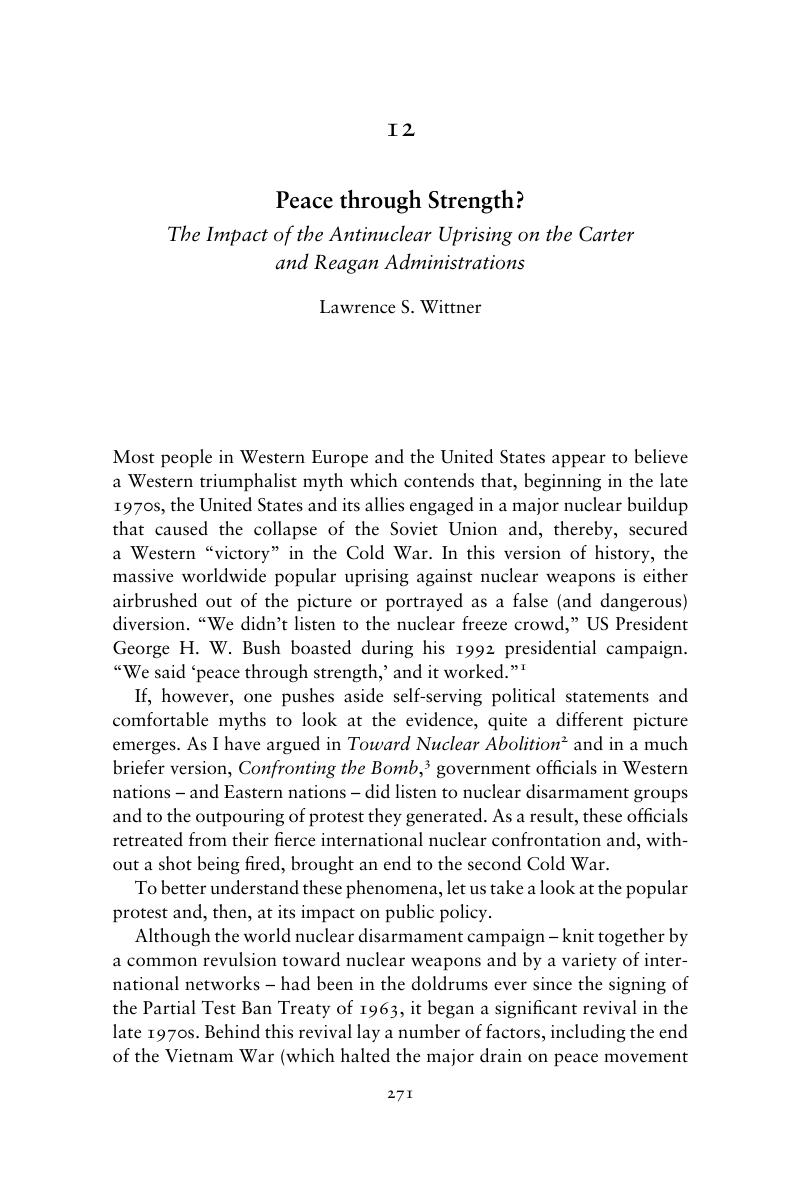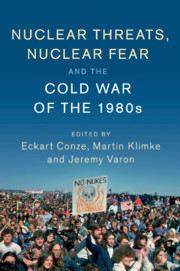Book contents
- Nuclear Threats, Nuclear Fear, and the Cold War of the 1980s
- Publications of the German Historical Institute
- Nuclear Threats, Nuclear Fear, and the Cold War of the 1980s
- Copyright page
- Contents
- Contributors
- Book part
- Introduction
- Part I Defining Threat
- Part II Popular Culture
- Part III Local and Transnational Activism
- Part IV The Challenge for High Politics
- 12 Peace through Strength?
- 13 Did Protest Matter? The Influence of the Peace Movement on the West German Government and the Social Democratic Party, 1977–1983
- 14 Why Was There No “Accidental Armageddon” Discourse in France? How Defense Intellectuals, Peace Movements, and Public Opinion Rethought the Cold War during the Euromissile Crisis
- 15 Building Trust
- Index
12 - Peace through Strength?
The Impact of the Antinuclear Uprising on the Carter and Reagan Administrations
from Part IV - The Challenge for High Politics
Published online by Cambridge University Press: 27 January 2017
- Nuclear Threats, Nuclear Fear, and the Cold War of the 1980s
- Publications of the German Historical Institute
- Nuclear Threats, Nuclear Fear, and the Cold War of the 1980s
- Copyright page
- Contents
- Contributors
- Book part
- Introduction
- Part I Defining Threat
- Part II Popular Culture
- Part III Local and Transnational Activism
- Part IV The Challenge for High Politics
- 12 Peace through Strength?
- 13 Did Protest Matter? The Influence of the Peace Movement on the West German Government and the Social Democratic Party, 1977–1983
- 14 Why Was There No “Accidental Armageddon” Discourse in France? How Defense Intellectuals, Peace Movements, and Public Opinion Rethought the Cold War during the Euromissile Crisis
- 15 Building Trust
- Index
Summary

- Type
- Chapter
- Information
- Nuclear Threats, Nuclear Fear and the Cold War of the 1980s , pp. 271 - 289Publisher: Cambridge University PressPrint publication year: 2016
- 1
- Cited by

